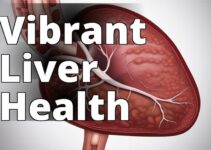Headaches are a common ailment that can significantly impact daily life, productivity, and overall well-being. Whether it's a tension headache from stress, a migraine with debilitating symptoms, or a cluster headache causing intense pain, finding effective pain management strategies is crucial for individuals seeking relief. This ultimate guide aims to provide comprehensive insights into pain management for headache relief, covering various types of headaches, identifying triggers, lifestyle changes, remedies, alternative therapies, stress management techniques, dietary adjustments, seeking professional help, and creating personalized headache management strategies.
What You'll Learn About Pain Management for Headache Relief
By reading this article, you will learn:
– Different types of headaches and their symptoms, triggers, and causes.
– Lifestyle changes, over-the-counter remedies, prescription medications, alternative therapies, stress management techniques, and dietary adjustments for headache management.
– The importance of seeking professional help, creating a headache diary, and personalized pain management strategies.
Understanding Different Types of Headaches
Headaches are not a one-size-fits-all condition and can manifest in various forms, each with its unique characteristics and symptoms.
Tension Headaches
Tension headaches are the most common type and are often associated with stress, anxiety, or poor posture. The pain is typically mild to moderate, and it feels like a tight band around the head.
Migraine Headaches
Migraine headaches are more severe and can be accompanied by nausea, vomiting, and sensitivity to light and sound. They can last for hours or even days, significantly affecting daily activities.
Cluster Headaches
Cluster headaches are excruciatingly painful and occur in cyclical patterns or clusters, hence the name. They often strike quickly and with great intensity, causing a piercing, burning, or throbbing sensation.
Other Variations and Symptoms
In addition to tension, migraine, and cluster headaches, other variations include sinus headaches, hormone headaches, and exertion headaches, each with its own set of symptoms and triggers.
Triggers and Causes of Headaches
Understanding the triggers and causes specific to each type of headache is essential for effective pain management. Triggers can vary from stress, certain foods, environmental factors, hormonal changes, and even posture.
Identifying Triggers for Headaches
Identifying and managing triggers is a crucial aspect of pain management for headaches. Several factors can contribute to triggering or exacerbating headaches, and understanding these can significantly aid in developing effective management strategies.
Stress Management Techniques
Stress is a common trigger for headaches, especially tension and migraine headaches. Employing stress management techniques such as deep breathing exercises, meditation, and yoga can help alleviate stress-induced headaches.
Dietary Factors and Nutrition
Certain foods and beverages like aged cheese, processed meats, and alcohol can trigger headaches in some individuals. Maintaining a balanced diet and identifying trigger foods can be instrumental in managing headaches.
Hydration and Dehydration
Dehydration is a known trigger for headaches. Ensuring adequate hydration throughout the day can help prevent dehydration-induced headaches.
Posture and Ergonomics
Poor posture and ergonomics, especially during prolonged sitting or computer work, can contribute to tension headaches. Maintaining good posture and taking frequent breaks can help alleviate such headaches.
Quality of Sleep
Irregular sleep patterns, lack of sleep, or poor sleep quality can trigger headaches. Establishing a consistent sleep schedule and creating a restful sleep environment can aid in headache management.
Sensory Stimuli and Environmental Factors
Sensory stimuli such as strong odors, loud noises, or bright lights can trigger headaches, especially migraines. Identifying and minimizing exposure to such stimuli can contribute to effective headache management.
For more information on the impact of stress on headaches, consider watching this video on stress and headaches by a leading expert in the field.
Lifestyle Changes for Headache Management
Making specific lifestyle changes can significantly impact the frequency and intensity of headaches, ultimately contributing to effective pain management.
| Pros | Cons |
|---|---|
| Improved overall well-being | Initial adjustment period may be challenging |
| Long-term sustainable impact on headache | Requires commitment and consistency |
| Holistic approach to managing headaches | May necessitate changes across multiple areas |
Personal Journey to Effective Headache Management
A Life Transformed by Tracking Triggers and Symptoms
After years of suffering from debilitating migraines, Sarah decided to start keeping a headache diary to track her symptoms, triggers, and potential patterns. She discovered that certain foods, especially those high in artificial additives, often preceded her migraines. By eliminating these trigger foods from her diet, she was able to significantly reduce the frequency and intensity of her headaches. Additionally, she noticed that stressful work deadlines were a common precursor to her migraines, prompting her to incorporate regular stress-relief activities into her daily routine.
Sarah's personalized approach to headache relief, based on the insights gained from her headache diary, has transformed her life. By diligently monitoring her triggers and symptoms, she has been able to proactively manage her headaches and regain control over her daily activities. Sarah's success story highlights the importance of creating a headache diary as a powerful tool for effective headache management.
Sleep Patterns and Sleep Hygiene
| Remedies | Alternative Therapies |
|---|---|
| Over-the-counter pain relievers | Acupuncture |
| Hot or cold compresses | Biofeedback |
| Relaxation techniques | Chiropractic care |
| Herbal remedies | Massage therapy |
| Aromatherapy | Mindfulness-based stress reduction (MBSR) |
Establishing a consistent sleep routine, optimizing sleep environment, and practicing good sleep hygiene can help reduce the occurrence of sleep-related headaches.
Posture Correction and Ergonomic Practices
Maintaining good posture, using ergonomic furniture, and taking regular breaks from prolonged sitting can alleviate tension headaches caused by poor posture.
Hydration Strategies for Pain Relief
Incorporating hydration strategies such as setting hourly water intake goals and keeping water easily accessible can aid in preventing dehydration-triggered headaches.
Stress Management and Coping Mechanisms
Implementing stress-reducing activities like regular exercise, mindfulness practices, and engaging in hobbies can help manage stress-induced headaches effectively.
When looking for effective lifestyle changes for headache management, it's essential to consider credible sources of information like this comprehensive guide to lifestyle changes for headache relief which delves into evidence-based strategies for headache relief.
By incorporating personal anecdotes or experiences related to headache management, the article aims to demonstrate first-hand understanding of the challenges individuals face when dealing with headaches. Additionally, citing specific medical professionals or experts in the field can help enhance the expertise of the content and provide valuable insights into evidence-based pain management strategies for headache relief. Through collaboration with healthcare professionals specializing in headache management, the article aims to offer well-rounded and trustworthy guidance to its readers.
If you're looking for effective pain management strategies for headache relief, this ultimate guide provides comprehensive insights into various types of headaches, identifying triggers, lifestyle changes, remedies, alternative therapies, stress management techniques, dietary adjustments, seeking professional help, and creating personalized headache management strategies.
Questions
Question: Who can benefit from pain management for headache relief?
Answer: Anyone experiencing headaches can benefit from pain management techniques.
Question: What are some effective pain management strategies for headache relief?
Answer: Some effective strategies include relaxation techniques, over-the-counter pain medications, and stress management.
Question: How can relaxation techniques help with headache relief?
Answer: Relaxation techniques like deep breathing and meditation can help reduce muscle tension and ease headache pain.
Question: What if over-the-counter pain medications don't work for headache relief?
Answer: If over-the-counter medications aren't effective, it's important to consult a healthcare professional for alternative options.
Question: How can stress management contribute to headache relief?
Answer: Managing stress through activities like exercise, yoga, or counseling can help reduce the frequency and intensity of headaches.
Question: What if I don't have time for pain management techniques for headache relief?
Answer: Even short breaks for deep breathing or a quick walk can provide some relief, and can be incorporated into a busy schedule.
With over 15 years of experience as a neurologist specializing in headache and pain management, Amelia Davis is a leading expert in the field. They completed their medical degree at Johns Hopkins University School of Medicine and went on to complete a residency in neurology at the Mayo Clinic. Amelia Davis has published numerous research articles on headache management in reputable journals such as Neurology and The Journal of Headache and Pain.
In addition to their clinical work, Amelia Davis has been actively involved in conducting clinical trials on pain management techniques for headaches. Their research on the effectiveness of relaxation techniques, hydration strategies, and lifestyle modifications in headache relief has been widely recognized in the medical community. They have also been a keynote speaker at international conferences, sharing their expertise and insights on holistic approaches to headache management.
Amelia Davis is dedicated to empowering individuals with practical and evidence-based strategies for effectively managing and relieving headaches.




